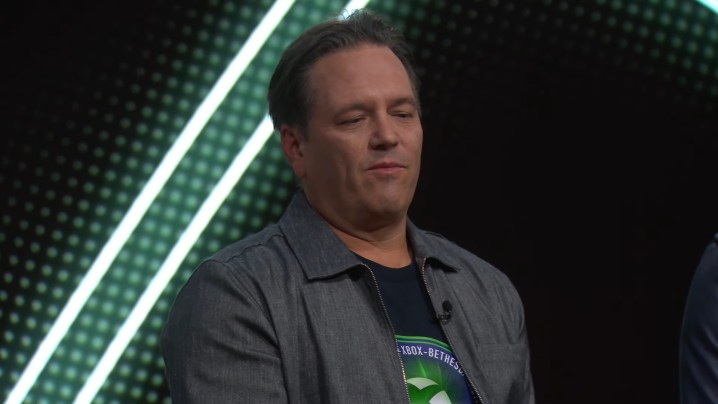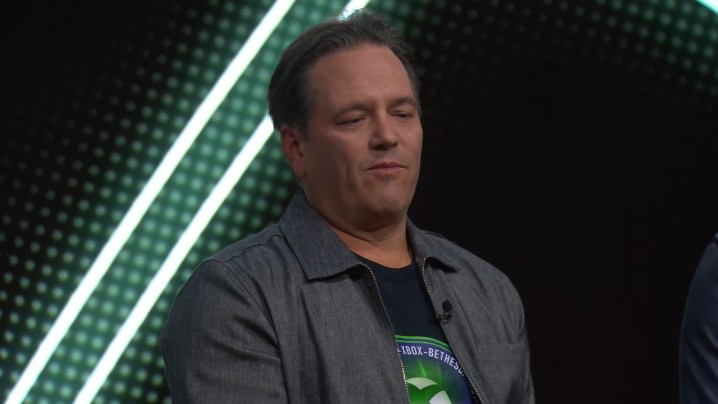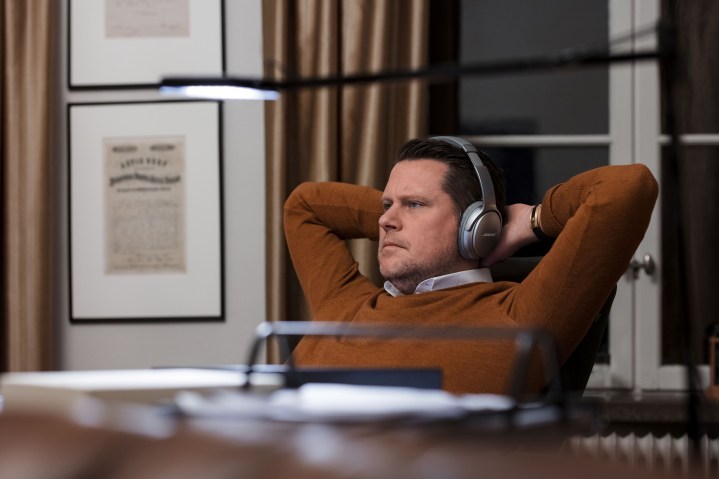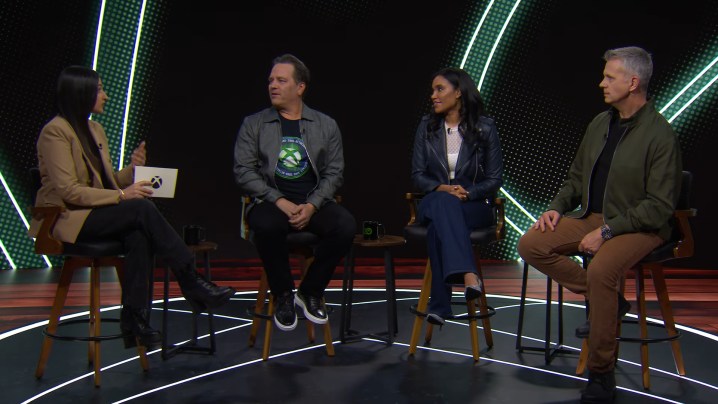

The wave of layoffs that has happened over the past year in the video game industry is well-documented. Some of the biggest culprits are Embracer Group, which has laid off nearly 1,400 workers across several of its studios since the start of a restructuring program last July, and Microsoft, which laid off 1,900 developers across Xbox, Bethesda, and Activision Blizzard in January. After relative silence around these layoffs, leadership at both companies finally tried to offer more transparently into what happened.
Neither of their statements are good enough.
While both Embracer Group CEO Lars Wingefors and Microsoft Gaming CEO Phil Spencer tried to sound more compassionate about letting go so many developer, those sentiments lack meaning when their focus is still on infinite growth and profitability. There’s a disconnect between the workers and the leadership at these companies, one that these lacking statements have begun to unveil.
Lars Wingefors’ statement
Embracer Group entered a restructuring program last summer when investment, reportedly from the Saudi Arabia-backed Savvy Games, fell through. The conglomerate had spent years acquiring a wide variety of IP and studios, but has now been shutting studios down, canceling projects, and laying off workers to make up for this lack of expected cash flow.
“In a groupwide effort, our companies and studios have had to make difficult decisions, particularly on having to part ways with team members,” Embracer’s third-quarter 2023 interim report, attributed to Wingefors, states. “In total, we have reduced our global headcount by 8% of the workforce since the start of the program. The reductions are managed locally on the operative group level, with a focus on informing affected employees first, and then carried out with compassion, respect, and integrity towards those affected.”

The statement falls flat for a few reasons. First, it sounds like he’s shifting the blame to individual studios when he points out that “reductions are managed locally,” even though these reductions are happening because of a deal he failed to close. Wingefors says the layoffs were “carried out with compassion, respect, and integrity,” but moves like closing Volition on the last day of August, which limited the health benefits its former employees could continue to receive, doesn’t line up with that claim. The impact of this attempt at compassion is also dulled by a statement made earlier in the third-quarter report.
“As part of the restructuring program, Embracer still has a few larger structured divestment processes ongoing that could strengthen our balance sheet and further reduce capex. Processes are in mature stages. Certain companies might initiate restructuring before any divestment is announced. Our overruling principle is to always maximize shareholder value in any given situation.”
Here’s another damning comment from a company earnings call Q&A: “You can debate the speed we went to build organic growth, but the ambition was obviously to aggressively organically grow the company. Now, we need to adjust for that, and that’s basically the core of the issue that we are addressing here.” No matter what Wingefors says, that makes it clear the developers and creatives aren’t who he’s truly concerned about; those investing in Embracer Group are.
Phil Spencer’s statement
During the Updates on the Xbox Business edition of the Official Xbox Podcast, leadership at Xbox repeatedly stressed how they wanted to maintain the health of the brand. Of course, that feels a bit at odds with laying off nearly 2,000 developers, so Spencer did take the time to address recent layoffs during the podcast. He admits that while 2023 was “an incredible year for gaming,” he sees a problem in that the industry “didn’t really grow.”

“What happens when an industry doesn’t grow? You end up with job eliminations, which we had,” Spencer says. “We had even our own hard decisions to make about building a sustainable business for ourselves, but in no way were we alone in that. When you think about a healthy industry, I want players who believe that they will find the best games on the platforms that they love. I want people who invest their careers in working here to feel like this is a place that they can be successful, and that is really down to being part of an industry that is growing. If you listen to Lisa Su, the AMD CEO, she’ll say that AMD-powered consoles are likely to decline in 2024. I think there’s an amazing set of games coming in 2024, but if we don’t get growing as an industry, the industry will struggle.”
Spencer’s statement does feel more transparent and honest toward developers than Wingefors’, but it’s far from a perfect response. Later on in the show, Xbox President Sarah Bond boasted that Xbox is “at the highest level of users on console, the highest level of users on PC, the highest level of users on cloud ever,” which seems at odds with the idea of a lack of growth, at least for Microsoft.
There’s some logic to it when zooming out. Newzoo’s 2023 Global Games Market Report shows that year-over-year growth for the game industry was only 0.6%. While Xbox user counts might be at an all-time high, its growth relative to that small industrywide percentage appears to be what concerns Spencer. Even with that considered, the biggest problem with Spencer’s statement is that it suggests Microsoft’s leadership is still keenly focused on the idea of infinite growth.
A year can’t just be good for the game industry — it needs to be better than the last. And if leadership deems the industry doesn’t quite meet the bar, the developers making the games are the ones punished. That’s part of why Embracer Group’s restructuring program isn’t quite over yet and why Xbox is starting to bring some of its games multiplatform.
Although I appreciate that Wingefors and Spencer took the time to address the devastating layoffs their companies caused, their words don’t do enough to shake the notion that those in charge at some of the video game industry’s largest companies care more about investors than the people actually creating games that make them money. Leadership at these video game industry companies needs to do better if we’re going to see the end of this layoff crisis.
Editors’ Recommendations






